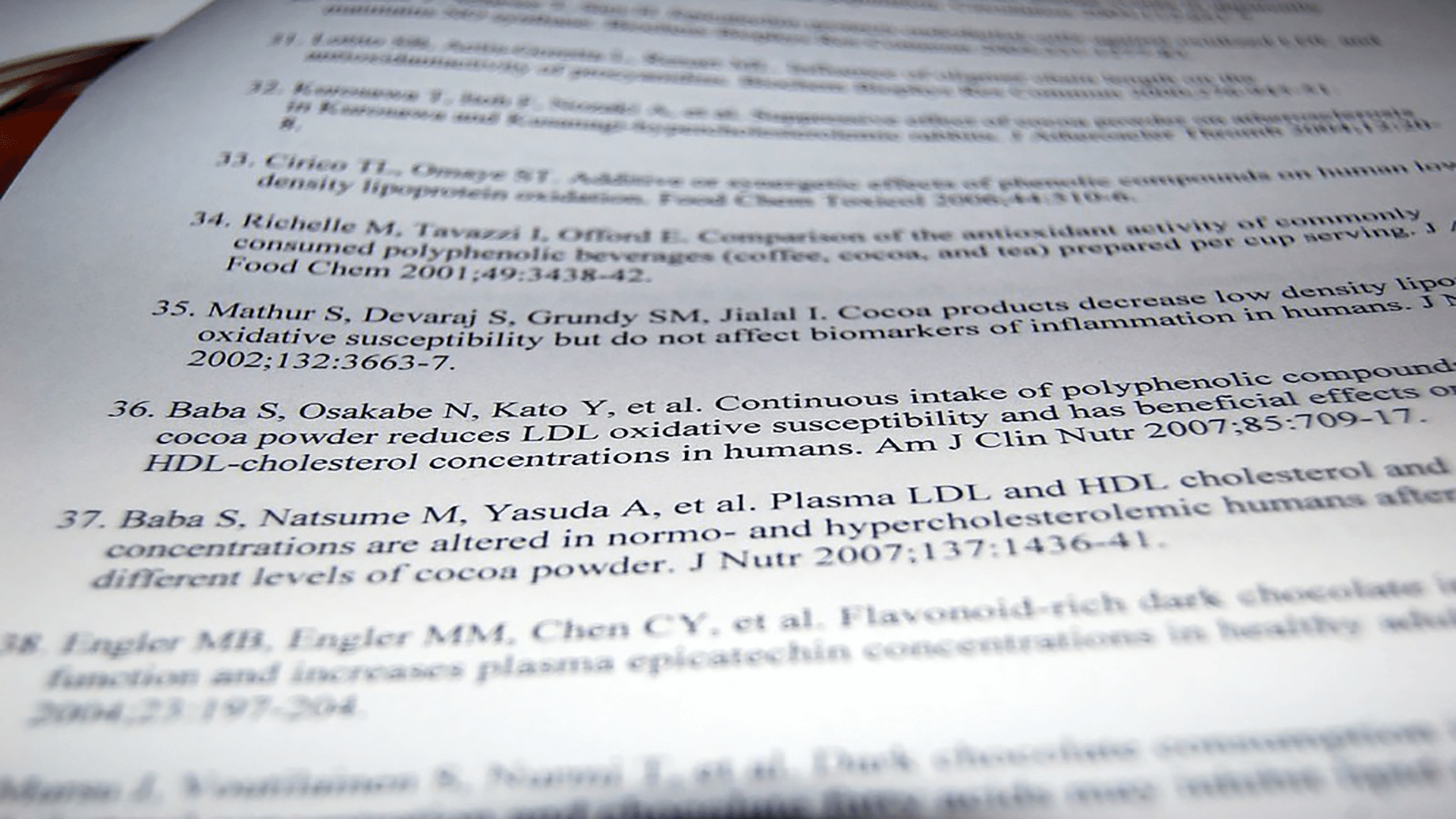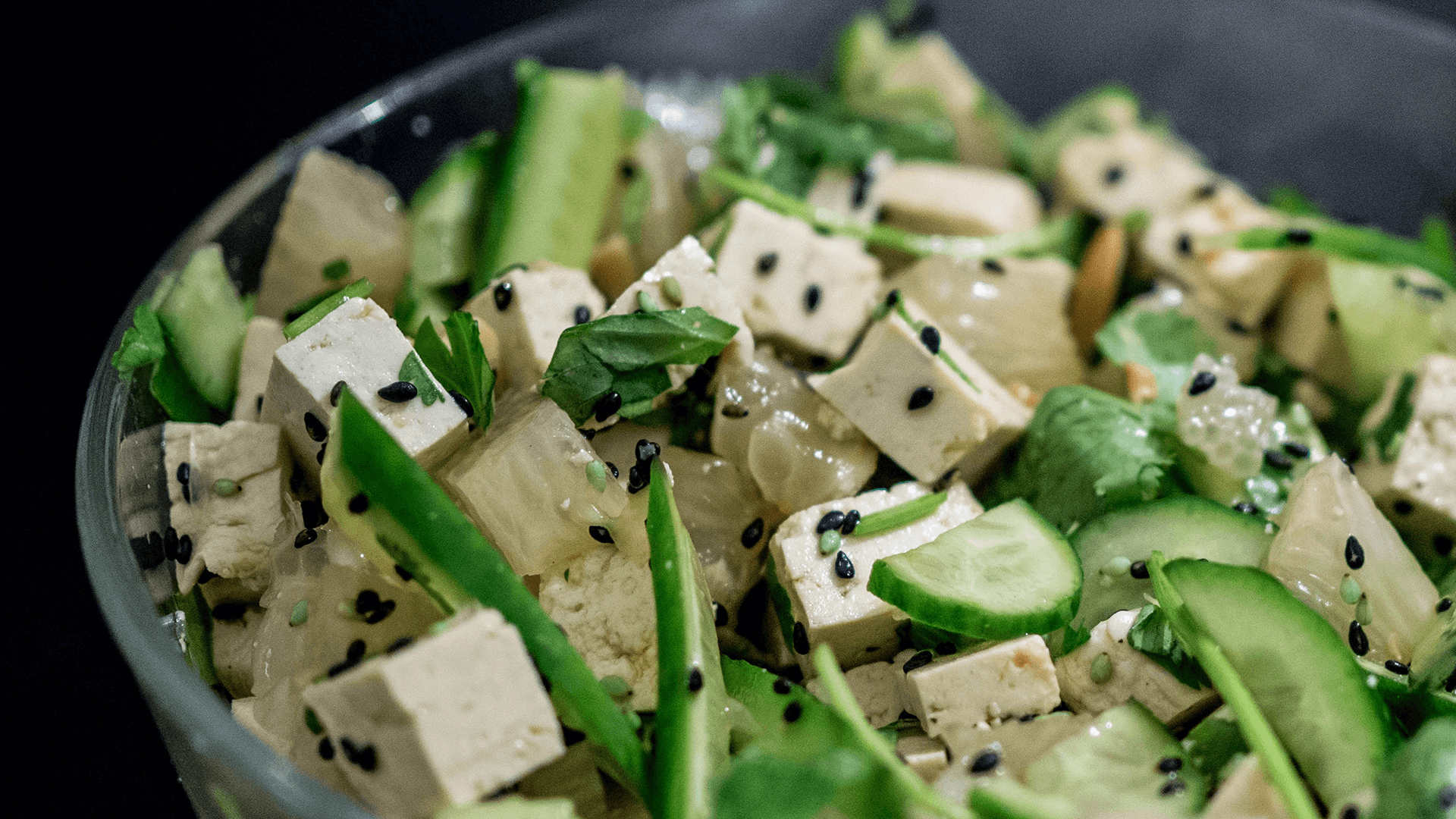Record of all References – Alphabetical Order
Below is a comprehensive record of all the references mentioned in our articles, these are in alphabetical order by the article title.
Eating traditionally made tofu helps prevent breast cancer
- Ferlay J, Bray F, Pisani P. Cancer incidence, mortality and prevalence worldwide. IARC Cancer Base no. 5. Lyon: IARC Press; 2004.
- Ziegler RG, Hoover RN, Pike MC, Hildesheim A, Nomura AMY, West DW, Wu-Williams AH, Kolonel LN, Horn-Ross PL, et al. Migration patterns and breast cancer risk in Asian-American women. J Natl Cancer Inst. 1993;85:1819–27.
- Ganry O. Phytoestrogen and breast cancer prevention. Eur J Cancer Prev. 2002;11:519–22.
- ‘Scientists Untangle the Soy-Breast Cancer Paradox’ By Christopher Wanjek, LiveScience, February 1, 2017.
- Yamamoto, S, Sobue, T, Kobayashi, M, et al. Soy, isoflavones, and breast cancer risk in Japan. J Natl Cancer Inst 2003; 95: 906– 13.
- Wu, AH, Koh, WP, Wang, R, et al. Soy intake and breast cancer risk in Singapore Chinese Health Study. Br J Cancer 2008; 99: 196– 200.
- Cederroth, CR, Nef, S. Soy, phytoestrogens and metabolism: a review. Mol Cell Endocrinol 2009; 304: 30– 42.
- Hooper, L, Ryder, JJ, Kurzer, MS, et al. Effects of soy protein and isoflavones on circulating hormone concentrations in pre‐ and post‐menopausal women: a systematic review and meta‐analysis. Hum Reprod Update 2009; 15: 423– 40.
- Yamamoto, S, Sobue, T, Kobayashi, M, et al. Soy, isoflavones, and breast cancer risk in Japan. J Natl Cancer Inst 2003; 95: 906– 13.
- Lee, SA, Shu, XO, Li, H, et al. Adolescent and adult soy food intake and breast cancer risk: results from the Shanghai Women’s Health Study. Am J Clin Nutr 2009; 89: 1920– 6.
- Nishio, K, Niwa, Y, Toyoshima, H, et al. Consumption of soy foods and the risk of breast cancer: findings from the Japan Collaborative Cohort (JACC) Study. Cancer Causes Control 2007; 18: 801– 8.
- Key, TJ, Sharp, GB, Appleby, PN, et al. Soya foods and breast cancer risk: a prospective study in Hiroshima and Nagasaki, Japan. Br J Cancer 1999; 81: 1248– 56.
- Hirayama, T. Life style and mortality. A large‐scale cencus‐based cohort study in Japan contributions to epidemiology and biostatistics. Basal: S. Karger, 1990.
- Wu, AH, Koh, WP, Wang, R, et al. Soy intake and breast cancer risk in Singapore Chinese Health Study. Br J Cancer 2008; 99: 196– 200.
- Travis, RC, Allen, NE, Appleby, PN, et al. A prospective study of vegetarianism and isoflavone intake in relation to breast cancer risk in British women. Int J Cancer 2008; 122: 705– 10.
- Hedelin, M, Lof, M, Olsson, M, et al. Dietary phytoestrogens are not associated with risk of overall breast cancer but diets rich in coumestrol are inversely associated with risk of estrogen receptor and progesterone receptor negative breast tumors in Swedish women. J Nutr 2008; 138: 938– 45.
- Touillaud, MS, Thiebaut, AC, Niravong, M, et al. No association between dietary phytoestrogens and risk of premenopausal breast cancer in a French cohort study. Cancer Epidemiol Biomarkers Prev 2006; 15: 2574– 6.
- Adebamowo, CA, Cho, E, Sampson, L, et al. Dietary flavonols and flavonol‐rich foods intake and the risk of breast cancer. Int J Cancer 2005; 114: 628– 33.
- Keinan‐Boker, L, Schouw, YT, Grobbee, DE, et al. Dietary phytoestrogens and breast cancer risk. Am J Clin Nutr 2004; 79: 282– 8.
- Horn‐Ross, PL, Hoggatt, KJ, West, DW, et al. Recent diet and breast cancer risk: the California Teachers Study (USA). Cancer Causes Control 2002; 13: 407– 15.
- Greenstein, J, Kushi, L, Zheng, W, et al. Risk of breast cabcer associated with intake of specific foods and food groups. Am J Epidemiol 1996; 143: s36.
- Dong, JY, Qin, LQ. Soy isoflavones consumption and risk of breast cancer incidence or recurrence: a meta‐analysis of prospective studies. Breast Cancer Res Treat 2011; 125: 315– 23.
- Wu, AH, Yu, MC, Tseng, CC, et al. Epidemiology of soy exposures and breast cancer risk. Br J Cancer 2008; 98: 9– 14.
- Qin, LQ, Xu, JY, Wang, PY, et al. Soyfood intake in the prevention of breast cancer risk in women: a meta‐analysis of observational epidemiological studies. J Nutr Sci Vitaminol (Tokyo) 2006; 52: 428– 36.
- Trock, BJ, Hilakivi‐Clarke, L, Clarke, R. Meta‐analysis of soy intake and breast cancer risk. J Natl Cancer Inst 2006; 98: 459– 71.
- Nagata, C. Factors to consider in the association between soy isoflavone intake and breast cancer risk. J Epidemiol 2010; 20: 83– 9.
- Messina, M, Wu, AH. Perspectives on the soy‐breast cancer relation. Am J Clin Nutr 2009; 89: 1673S– 1679S.
- Peeters, PH, Keinan‐Boker, L, Schouw, YT, et al. Phytoestrogens and breast cancer risk. Review of the epidemiological evidence. Breast Cancer Res Treat 2003; 77: 171– 83.
- Wu, AH, Ziegler, RG, Nomura, AM, et al. Soy intake and risk of breast cancer in Asians and Asian Americans. Am J Clin Nutr 1998; 68: 1437S– 1443S.
- Iwasaki, M, Inoue, M, Otani, T, et al. Plasma isoflavone level and subsequent risk of breast cancer among Japanese women: a nested case‐control study from the Japan Public Health Center‐based prospective study group. J Clin Oncol 2008; 26: 1677– 83.
- Wu, AH, Ziegler, RG, Horn‐Ross, PL, et al. Tofu and risk of breast cancer in Asian‐Americans. Cancer Epidemiol Biomarkers Prev 1996; 5: 901– 6.
- Kennedy AR, Manzone H. Effects of protease inhibitors on levels of proteolytic activity in normal and premalignant cells and tissues. J Cell Biochem Suppl. 1995;22:188–94.
- Shamsuddin AM. Inositol phosphates have novel anticancer function. J Nutr. 1995;125:S725–32.
- Shamsuddin AM, Yang GY. Inositol hexaphosphate inhibits growth and induces differentiation of PC-3 human prostate cancer cells. Carcinogenesis. 1995;16:1975–9.
- Hedlund TE, van Bokhoven A, Johannes WU, Nordeen SK, Ogden LG. Prostatic fluid concentrations of isoflavonoids in soy consumers are sufficient to inhibit growth of benign and malignant prostatic epithelial cells in vitro. Prostate. 2006;66:557–66.
- Sasamura H, Takahashi A, Yuan J, Kitamura H, Masumori N, Miyao N, Itoh N, Tsukamoto T. Antiproliferative and antiangiogenic activities of genistein in human renal cell carcinoma. Urology. 2004;64:389–93.
- Shao ZM, Wu J, Shen ZZ, Barsky SH. Dietary genistein exerts estrogenic effects on human breast carcinoma cells. Cancer Res. 1998;58:4851–7.
- Shen J, Tai YC, Zhou J, Stephen Wong CH, Cheang PT, Fred Wong WS, Xie Z, Khan M, Han JH, et al.Synergistic antileukemia effect of genistein and chemotherapy in mouse xenograft model and potential mechanism through MAPK signaling. Exp Hematol. 2007;35:75–83.
- Yanagihara K, Ito A, Toge T, Numoto M. Antiproliferative effects of isoflavones on human cancer cell lines established from the gastrointestinal tract. Cancer Res. 1993;53:5815–21.
- ‘Phytoestrogens: epidemiology and a possible role in cancer protection’. H Adlercreutz. Published:1 October 1995 https://doi.org/10.1289/ehp.95103s7103 https://ehp.niehs.nih.gov/doi/abs/10.1289/ehp.95103s7103
- Setchell KD, Cole SJ. Variations in isoflavone levels in soy foods and soy protein isolates and issues related to isoflavone databases and food labeling. J Agric Food Chem. 2003;51:4146–55.
- Fang N, Yu S, Badger TM. Comprehensive phytochemical profile of soy protein isolate. J Agric Food Chem. 2004;52:4012–20.
- Bawa, A. S., & Anilakumar, K. R. (2013, December). Genetically modified foods: Safety, risks and public concerns—a review. Journal of Food Science and Technology, 50(6), 1035–1046. Retrieved from https://www.ncbi.nlm.nih.gov/pmc/articles/PMC3791249/
- Frequently asked questions on genetically modified foods. (2014, May). Retrieved from http://www.who.int/foodsafety/areas_work/food-technology/faq-genetically-modified-food/en/
- Recent trends in GE adoption. (2017, July 12). Retrieved from https://www.ers.usda.gov/data-products/adoption-of-genetically-engineered-crops-in-the-us/recent-trends-in-ge-adoption.aspx
Fermented Indonesian superfood found to lower cholesterol and help prevent heart attacks
- https://www.medicalnewstoday.com/articles/325123.php
- A Meta-Analysis of 46 Studies Identified by the FDA Demonstrates that Soy Protein Decreases Circulating LDL and Total Cholesterol Concentrations in Adults; Sonia Blanco Mejia Mark Messina Siying S Li Effie Viguiliouk Laura Chiavaroli Tauseef A Khan Korbua Srichaikul Arash Mirrahimi John L Sievenpiper Penny Kris-Etherton; The Journal of Nutrition, nxz020, https://doi.org/10.1093/jn/nxz020 Published: 22 April 2019. This trial was registered at clinicaltrials.gov as NCT03468127. Nutrition and Disease, American Society for Nutrition 2019.
- Cardiovascular and renal benefits of dry beans and soybean intake. Anderson JW, Smith BS, Washnock CS. Am J Clin Nutr 1999(suppl);70:464S–74S.
- Zhang, Y.-B., Chen, W.-H., Guo, J.-J., Fu, Z.-H., Yi, C., Zhang, M., …Na, X.-L. (2013, January). Soy isoflavone supplementation could reduce body weight and improve glucose metabolism in non-Asian postmenopausal women—a meta-analysis. Nutrition, 29(1), 8–14. Retrieved from http://www.nutritionjrnl.com/article/S0899-9007(12)00143-8/fulltext
- (2016, December 1). Retrieved from https://nccih.nih.gov/health/soy/ataglance.htm
- Tokede, O., Onabanjo, T. A., Yansane, A., Gaziano, J., & Djoussé, L. (2015, September 28). Soya products and serum lipids: A meta-analysis of randomised controlled trials. British Journal of Nutrition, 114(6), 831–843. Retrieved from https://www.cambridge.org/core/journals/british-journal-of-nutrition/article/soya-products-and-serum-lipids-a-metaanalysis-of-randomised-controlled-trials/180FD802B992EE018ED5763CD7F73ECB/core-reader#
- Tonstad, S., Jaceldo-Siegl, K., Messina, M., Haddad, E., & Fraser, G. E. (2016, June). The association between soya consumption and serum thyroid-stimulating hormone concentrations in the Adventist Health Study-2. Public Health Nutrition, 19(8), 1464–1470. Retrieved from https://www.cambridge.org/core/journals/public-health-nutrition/article/association-between-soya-consumption-and-serum-thyroidstimulating-hormone-concentrations-in-the-adventist-health-study2/6363E77480EA431223E8ECB472D75AA0/core-reader#
- Uses of soy. (n.d.). Retrieved from http://ncsoy.org/media-resources/uses-of-soybeans/
- Influence of dietary patterns on the risk of acute myocardial infarction in China population: the INTERHEART China study Chin Med J (Engl). 2013 Feb;126(3):464-70. Guo J1, Li W, Wang Y, Chen T, Teo K, Liu LS, Yusuf S; INTERHEART China study investigators. https://www.ncbi.nlm.nih.gov/pubmed/23422108
- Mark J Messina, The American Journal of Clinical Nutrition, Volume 70, Issue 3, 1 September 1999, Pages 439s–450s, https://doi.org/10.1093/ajcn/70.3.439s
- Bawa, A. S., & Anilakumar, K. R. (2013, December). Genetically modified foods: Safety, risks and public concerns—a review. Journal of Food Science and Technology, 50(6), 1035–1046. Retrieved from https://www.ncbi.nlm.nih.gov/pmc/articles/PMC3791249/
- Frequently asked questions on genetically modified foods. (2014, May). Retrieved from http://www.who.int/foodsafety/areas_work/food-technology/faq-genetically-modified-food/en/
- Recent trends in GE adoption. (2017, July 12). Retrieved from https://www.ers.usda.gov/data-products/adoption-of-genetically-engineered-crops-in-the-us/recent-trends-in-ge-adoption.aspx
Forget Meat. Forget Fake Meat. Eat Real Plants. References:
- Dinu M, Abbate R, Gensini GF, Casini A, Sofi Vegetarian, vegan diets and multiple health outcomes: a systematic review with meta-analysis of observational studies. Crit Rev Food Sci Nutr. 2017;57(17):3640-3649. doi:10.1080/10408398.2016.1138447PubMedGoogle ScholarCrossref
- McMacken M, Shah A plant-based diet for the prevention and treatment of type 2 diabetes. J Geriatr Cardiol. 2017;14(5):342-354. doi:10.11909/j.issn.1671-5411.2017.05.009PubMedGoogle Scholar
- Satija A, Bhupathiraju SN, Spiegelman D, et al. Healthful and unhealthful plant-based diets and the risk of coronary heart disease in U.S. adults. J Am Coll Cardiol. 2017;70(4):411-422. doi:1016/j.jacc.2017.05.047PubMedGoogle ScholarCrossref
- Lanou AJ, Svenson Reduced cancer risk in vegetarians: an analysis of recent reports. Cancer Manag Res. 2010;3:1-8. doi:10.2147/CMAR.S6910PubMedGoogle ScholarCrossref
- Hu Plant-based foods and prevention of cardiovascular disease: an overview. Am J Clin Nutr. 2003;78(3)(suppl):544S-551S. doi:10.1093/ajcn/78.3.544SPubMedGoogle ScholarCrossref
- Kahleova H, Levin S, Barnard Cardio-metabolic benefits of plant-based diets. Nutrients. 2017;9(8):E848. doi:10.3390/nu9080848PubMedGoogle ScholarCrossref
- Song M, Fung TT, Hu FB, et al. Association of animal and plant protein intake with all-cause and cause-specific mortality. JAMA Intern Med. 2016;176(10):1453-1463. doi:1001/jamainternmed.2016.4182
ArticlePubMedGoogle ScholarCrossref - Gijsbers L, Ding EL, Malik VS, de Goede J, Geleijnse JM, Soedamah-Muthu Consumption of dairy foods and diabetes incidence: a dose-response meta-analysis of observational studies. Am J Clin Nutr. 2016;103(4):1111-1124. doi:10.3945/ajcn.115.123216PubMedGoogle ScholarCrossref
- Zhang M, Picard-Deland E, Marette Fish and marine omega-3 polyunsatured fatty acid consumption and incidence of type 2 diabetes: a systematic review and meta-analysis. Int J Endocrinol. 2013;2013:501015. doi:10.1155/2013/501015PubMedGoogle Scholar
- Mozaffarian Dietary and policy priorities for cardiovascular disease, diabetes, and obesity: a comprehensive review. Circulation. 2016;133(2):187-225. doi:10.1161/CIRCULATIONAHA.115.018585PubMedGoogle ScholarCrossref
- Bhupathiraju SN, Tobias DK, Malik VS, et al. Glycemic index, glycemic load, and risk of type 2 diabetes: results from 3 large US cohorts and an updated meta-analysis. Am J Clin Nutr. 2014;100(1):218-232. doi:3945/ajcn.113.079533PubMedGoogle ScholarCrossref
- Hemler EC, Hu Plant-based diets for cardiovascular disease prevention: all plant foods are not created equal. Curr Atheroscler Rep. 2019;21(5):18. doi:10.1007/s11883-019-0779-5PubMedGoogle ScholarCrossref
- Lee Y, Park Adherence to a vegetarian diet and diabetes risk: a systematic review and meta-analysis of observational studies. Nutrients. 2017;9(6):E603. doi:10.3390/nu9060603PubMedGoogle ScholarCrossref
- Vang A, Singh PN, Lee JW, Haddad EH, Brinegar Meats, processed meats, obesity, weight gain and occurrence of diabetes among adults: findings from Adventist Health Studies. Ann Nutr Metab. 2008;52(2):96-104. doi:10.1159/000121365PubMedGoogle ScholarCrossref
- Tonstad S, Stewart K, Oda K, Batech M, Herring RP, Fraser Vegetarian diets and incidence of diabetes in the Adventist Health Study-2. Nutr Metab Cardiovasc Dis. 2013;23(4):292-299. doi:10.1016/j.numecd.2011.07.004PubMedGoogle ScholarCrossref
- Yokoyama Y, Barnard ND, Levin SM, Watanabe Vegetarian diets and glycemic control in diabetes: a systematic review and meta-analysis. Cardiovasc Diagn Ther. 2014;4(5):373-382. doi:10.3978/j.issn.2223-3652.2014.10.04PubMedGoogle Scholar
- Barnard ND, Levin SM, Yokoyama A systematic review and meta-analysis of changes in body weight in clinical trials of vegetarian diets. J Acad Nutr Diet. 2015;115(6):954-969. doi:10.1016/j.jand.2014.11.016PubMedGoogle ScholarCrossref
- Stroup DF, Berlin JA, Morton SC, et al; Meta-analysis Of Observational Studies in Epidemiology (MOOSE) Group. Meta-analysis of observational studies in epidemiology: a proposal for reporting. JAMA. 2000;283(15):2008-2012. doi:1001/jama.283.15.2008
ArticlePubMedGoogle ScholarCrossref - Peters JL, Sutton AJ, Jones DR, Abrams KR, Rushton Comparison of two methods to detect publication bias in meta-analysis. JAMA. 2006;295(6):676-680. doi:10.1001/jama.295.6.676
ArticlePubMedGoogle ScholarCrossref - Orsini N, Li R, Wolk A, Khudyakov P, Spiegelman Meta-analysis for linear and nonlinear dose-response relations: examples, an evaluation of approximations, and software. Am J Epidemiol. 2012;175(1):66-73. doi:10.1093/aje/kwr265PubMedGoogle ScholarCrossref
- Koloverou E, Panagiotakos DB, Georgousopoulou EN, et al; ATTICA Study Group. Dietary patterns and 10-year (2002-2012) incidence of type 2 diabetes: results from the ATTICA Cohort Study. Rev Diabet Stud. 2016;13(4):246-256. doi:1900/RDS.2016.13.246PubMedGoogle ScholarCrossref
- Satija A, Bhupathiraju SN, Rimm EB, et al. Plant-based dietary patterns and incidence of type 2 diabetes in US men and women: results from three prospective cohort studies. PLoS Med. 2016;13(6): doi:10.1371/journal.pmed.1002039PubMedGoogle ScholarCrossref
- Chen GC, Koh WP, Neelakantan N, Yuan JM, Qin LQ, van Dam Diet quality indices and risk of type 2 diabetes mellitus: the Singapore Chinese Health Study. Am J Epidemiol. 2018;187(12):2651-2661. doi:10.1093/aje/kwy183PubMedGoogle ScholarCrossref
- Chen Z, Zuurmond MG, van der Schaft N, et al. Plant versus animal based diets and insulin resistance, prediabetes and type 2 diabetes: the Rotterdam Study. Eur J Epidemiol. 2018;33(9):883-893. doi:1007/s10654-018-0414-8PubMedGoogle ScholarCrossref
- Chiu THT, Pan WH, Lin MN, Lin Vegetarian diet, change in dietary patterns, and diabetes risk: a prospective study. Nutr Diabetes. 2018;8(1):12. doi:10.1038/s41387-018-0022-4PubMedGoogle ScholarCrossref
- Kahleova H, Tura A, Hill M, Holubkov R, Barnard A plant-based dietary intervention improves beta-cell function and insulin resistance in overweight adults: a 16-week randomized clinical trial. Nutrients. 2018;10(2):E189. doi:10.3390/nu10020189PubMedGoogle ScholarCrossref
- Yokoyama Y, Nishimura K, Barnard ND, et al. Vegetarian diets and blood pressure: a meta-analysis. JAMA Intern Med. 2014;174(4):577-587. doi:1001/jamainternmed.2013.14547
ArticlePubMedGoogle ScholarCrossref - Kahleova H, Matoulek M, Malinska H, et al. Vegetarian diet improves insulin resistance and oxidative stress markers more than conventional diet in subjects with type 2 diabetes. Diabet Med. 2011;28(5):549-559. doi:1111/j.1464-5491.2010.03209.xPubMedGoogle ScholarCrossref
- Haghighatdoost F, Bellissimo N, Totosy de Zepetnek JO, Rouhani Association of vegetarian diet with inflammatory biomarkers: a systematic review and meta-analysis of observational studies. Public Health Nutr. 2017;20(15):2713-2721. doi:10.1017/S1368980017001768PubMedGoogle ScholarCrossref
- Micha R, Michas G, Mozaffarian Unprocessed red and processed meats and risk of coronary artery disease and type 2 diabetes—an updated review of the evidence. Curr Atheroscler Rep. 2012;14(6):515-524. doi:10.1007/s11883-012-0282-8PubMedGoogle ScholarCrossref
- Li P, Zhong C, Li S, et al. Plasma concentration of trimethylamine-N-oxide and risk of gestational diabetes mellitus. Am J Clin Nutr. 2018;108(3):603-610. doi:1093/ajcn/nqy116PubMedGoogle ScholarCrossref
- Svingen GF, Schartum-Hansen H, Pedersen ER, et al. Prospective associations of systemic and urinary choline metabolites with incident type 2 diabetes. Clin Chem. 2016;62(5):755-765. doi:1373/clinchem.2015.250761PubMedGoogle ScholarCrossref
- Malik VS, Li Y, Tobias DK, Pan A, Hu Dietary protein intake and risk of type 2 diabetes in US men and women. Am J Epidemiol. 2016;183(8):715-728. doi:10.1093/aje/kwv268PubMedGoogle ScholarCrossref
- Rice Bradley Dietary fat and risk for type 2 diabetes: a review of recent research. Curr Nutr Rep. 2018;7(4):214-226. doi:10.1007/s13668-018-0244-zPubMedGoogle ScholarCrossref
- Huang RY, Huang CC, Hu FB, Chavarro Vegetarian diets and weight reduction: a meta-analysis of randomized controlled trials. J Gen Intern Med. 2016;31(1):109-116. doi:10.1007/s11606-015-3390-7PubMedGoogle ScholarCrossref
- Mozaffarian D, Hao T, Rimm EB, Willett WC, Hu Changes in diet and lifestyle and long-term weight gain in women and men. N Engl J Med. 2011;364(25):2392-2404. doi:10.1056/NEJMoa1014296PubMedGoogle ScholarCrossref
- Smith JD, Hou T, Ludwig DS, et al. Changes in intake of protein foods, carbohydrate amount and quality, and long-term weight change: results from 3 prospective cohorts. Am J Clin Nutr. 2015;101(6):1216-1224. doi:3945/ajcn.114.100867PubMedGoogle ScholarCrossref
- Barnard ND, Cohen J, Jenkins DJ, et al. A low-fat vegan diet and a conventional diabetes diet in the treatment of type 2 diabetes: a randomized, controlled, 74-wk clinical trial. Am J Clin Nutr. 2009;89(5):1588S-1596S. doi:3945/ajcn.2009.26736HPubMedGoogle ScholarCrossref
- Baden MY, Satija A, Hu FB, Huang Change in plant-based diet quality is associated with changes in plasma adiposity-associated biomarker concentrations in women. J Nutr. 2019;149(4):676-686. doi:10.1093/jn/nxy301PubMedGoogle ScholarCrossref
- Eichelmann F, Schwingshackl L, Fedirko V, Aleksandrova Effect of plant-based diets on obesity-related inflammatory profiles: a systematic review and meta-analysis of intervention trials. Obes Rev. 2016;17(11):1067-1079. doi:10.1111/obr.12439PubMedGoogle ScholarCrossref
- Ruby Vegetarianism: a blossoming field of study. Appetite. 2012;58(1):141-150. doi:10.1016/j.appet.2011.09.019PubMedGoogle ScholarCrossref
- Craig Health effects of vegan diets. Am J Clin Nutr. 2009;89(5):1627S-1633S. doi:10.3945/ajcn.2009.26736NPubMedGoogle ScholarCrossref
- Pittas AG, Lau J, Hu FB, Dawson-Hughes The role of vitamin D and calcium in type 2 diabetes: a systematic review and meta-analysis. J Clin Endocrinol Metab. 2007;92(6):2017-2029. doi:10.1210/jc.2007-0298PubMedGoogle ScholarCrossref
- Dietary Guidelines for Americans 2015-2020. 8th ed. December 2015. US Department of Health and Human Services and US Department of Agriculture website. https://health.gov/dietaryguidelines/2015/guidelines/. Accessed June 21, 2019.
- Willett W, Rockström J, Loken B, et al. Food in the Anthropocene: the EAT-Lancet Commission on healthy diets from sustainable food systems. Lancet. 2019;393(10170):447-492. doi:1016/S0140-6736(18)31788-4PubMedGoogle ScholarCrossref
- Jannasch F, Kröger J, Schulze Dietary patterns and type 2 diabetes: a systematic literature review and meta-analysis of prospective studies. J Nutr. 2017;147(6):1174-1182. doi:10.3945/jn.116.242552PubMedGoogle ScholarCrossref
- Salas-Salvadó J, Bulló M, Estruch R, et al. Prevention of diabetes with Mediterranean diets: a subgroup analysis of a randomized trial. Ann Intern Med. 2014;160(1):1-10. doi:7326/M13-1725PubMedGoogle ScholarCrossref
- AlEssa HB, Bhupathiraju SN, Malik VS, et al. Carbohydrate quality and quantity and risk of type 2 diabetes in US women. Am J Clin Nutr. 2015;102(6):1543-1553. doi:3945/ajcn.115.116558PubMedGoogle ScholarCrossref
- Pawlak Vegetarian diets in the prevention and management of diabetes and its complications. Diabetes Spectr. 2017;30(2):82-88. doi:10.2337/ds16-0057PubMedGoogle ScholarCrossref
- Dehghan M, Mente A, Zhang X, et al; Prospective Urban Rural Epidemiology (PURE) Study Investigators. Associations of fats and carbohydrate intake with cardiovascular disease and mortality in 18 countries from five continents (PURE): a prospective cohort study. Lancet. 2017;390(10107):2050-2062. doi:1016/S0140-6736(17)32252-3PubMedGoogle ScholarCrossref
- Soy and Soy Products Intake, All-Cause Mortality, and Cause-Specific Mortality in Japan: The Jichi Medical School Cohort Study. Asia Pac J Public Health. 2015 Jul;27(5):531-41. doi: 10.1177/1010539514539545. Epub 2014 Jun 23. Yamasaki K1, Kayaba K2, Ishikawa S3.
- Budhathoki S, et al “Association of animal and plant protein intake with all-cause and cause-specific mortality” JAMA Intern Med 2019; DOI: 10.1001/jamainternmed.2019.2806.
- Hu FB, et al “Can plant-based meat alternatives be part of a healthy and sustainable diet?” JAMA 2019; DOI: 10.1001/jama.2019.13187.
- ‘Legume and soy food intake and the incidence of type 2 diabetes in the Shanghai Women’s Health Study’ Authors: R. Villegas, Y.-T. Gao, G. Yang, H.-L. Li, T.A. Elasy, W. Zheng and X.O. Shu. As published in the American Journal of Clinical Nutrition January 2008, Volume 87, Number 1, Pages 162-167.
- Setchell KD, Cole SJ. Variations in isoflavone levels in soy foods and soy protein isolates and issues related to isoflavone databases and food labeling. J Agric Food Chem. 2003;51:4146–55.
- Fang N, Yu S, Badger TM. Comprehensive phytochemical profile of soy protein isolate. J Agric Food Chem. 2004;52:4012–20.
- Bawa, A. S., & Anilakumar, K. R. (2013, December). Genetically modified foods: Safety, risks and public concerns—a review. Journal of Food Science and Technology, 50(6), 1035–1046. Retrieved from https://www.ncbi.nlm.nih.gov/pmc/articles/PMC3791249/
- Frequently asked questions on genetically modified foods. (2014, May). Retrieved from http://www.who.int/foodsafety/areas_work/food-technology/faq-genetically-modified-food/en/
- Recent trends in GE adoption. (2017, July 12). Retrieved from https://www.ers.usda.gov/data-products/adoption-of-genetically-engineered-crops-in-the-us/recent-trends-in-ge-adoption.aspx
- Frank Qian, Gang Liu, Frank B. Hu, Shilpa N. Bhupathiraju, Qi Sun, JAMA Internal Medicine, online, doi: doi:10.1001/jamainternmed.2019.2195. Meta-analysis research from nine PubMed, MEDLINE, Embase and Web of Science prospective cohort studies across systematic health data from 307,099 participants with 23,544 cases of type 2 diabetes. Study by the Harvard T.H. Chan School of Public Health in Boston, as funded by the US National Institutes of Health, and published July 22, 2019 in JAMA Internal Medicine. SOURCE: Qian F et al. JAMA Internal Medicine. 2019 Jul 22. http://bit.ly/30NStrN JAMA Internal Medicine, online July 22, 2019.
Gluten & Intolerance
- ‘A randomised controlled rechallenge trial’, by Australian researchers. American Journal of Gastroenterology, 2011; 106:508–514. Also see, Di Sabatino, A., Corrazza, G.R., ‘Nonceliac gluten sensitivity: sense or sensibility?’ Annals of Internal Medicine, 2012; 156:309–311.
- Study presented at the European Respiratory Society’s International Congress on 7 September 2014. http://www.eurekalert.org/pub_releases/2014-09/elf-fia090314.php
- Lancet, Vol. 358, 4 August 2001. Also see, Gastroenterology, July 2009, 137(1):88–93.
- American Journal of Gastroenterology, 31 July 2012.
- Moleski, S.M., et al. ‘Infertility and pregnancy outcomes in celiac disease.’ Presented to the American College of Gastroenterology Conference in Las Vegas 2012, abstract 15.
- Ivan Araujo, Albino Oliviera-Maia, Tatyana Sotnikova, Raul Gainetdinov, Marc Caron, Miguel Nicolelis, Simon Sidney, ‘Food Reward in the absence of taste receptor signaling.’ Neuron, DOI:10. 1016/j.neuron.2008.01.032.
- ‘Sugar, White Flour Withdrawal Produces Chemical Response’, The Addiction Letter, July 1992:04:00.
- Colantuoni, C., et al. ‘Evidence That Intermittent, Excessive Sugar Intake Causes Endogenous Opioid Dependence.’ Obesity Research, June 2002; 10(6):478–488.
- Christensen L., et al. ‘Impact of A Dietary Change on Emotional Distress.’ Journal of Abnormal Psychology, 1985, 94(4):565–79.
- Ludwig, D.S., et al., ‘High Glycemic Index Foods, Overeating and Obesity.’ Pediatrics, March 1999, 03(3):26–32.
- Study research presented at the American College of Neuropsychopharmacology in Scottsdale, Arizona, December 2008, by researchers at Princeton University.
- Yasuhito Onodera, Jin-Min Nam and Mina J. Bissell, ‘Increased sugar uptake promotes oncogenesis via EPAC/RAP1 and O-GlcNAc pathways.’ Journal of Clinical Investigation, 2 January 2014.
- Study by Basu, S., et al. ‘The relationship of sugar to population-level diabetes prevalence: an econometric analysis of repeated cross-sectional data.’ PLoS ONE 2013; DOI:10.1371/journal.pone.0057873.
- Du, L. Li, D. Bennett, Y. Guo, Z. Bian, J. Chen, T. Key, R. Collins, R. Peto and Z. Chen, study on 451,682 people over seven years, Nuffield Department of Population Health, University of Oxford, the Chinese Academy of Medical Sciences, Beijing, and the National Center for Food Safety Risk Assessment in Beijing, European Heart Journal (2014) 35.
- Study by Liu, L., Zubik, L., Collins, F.W., Marko, M., Meydani, M., ‘The antiatherogenic potential of oat phenolics compounds.’ Atherosclerosis, 2004, 175:39–49. Also see, Davidson, A., The Oxford Companion to Food. Oxford University Press, p. 892.









